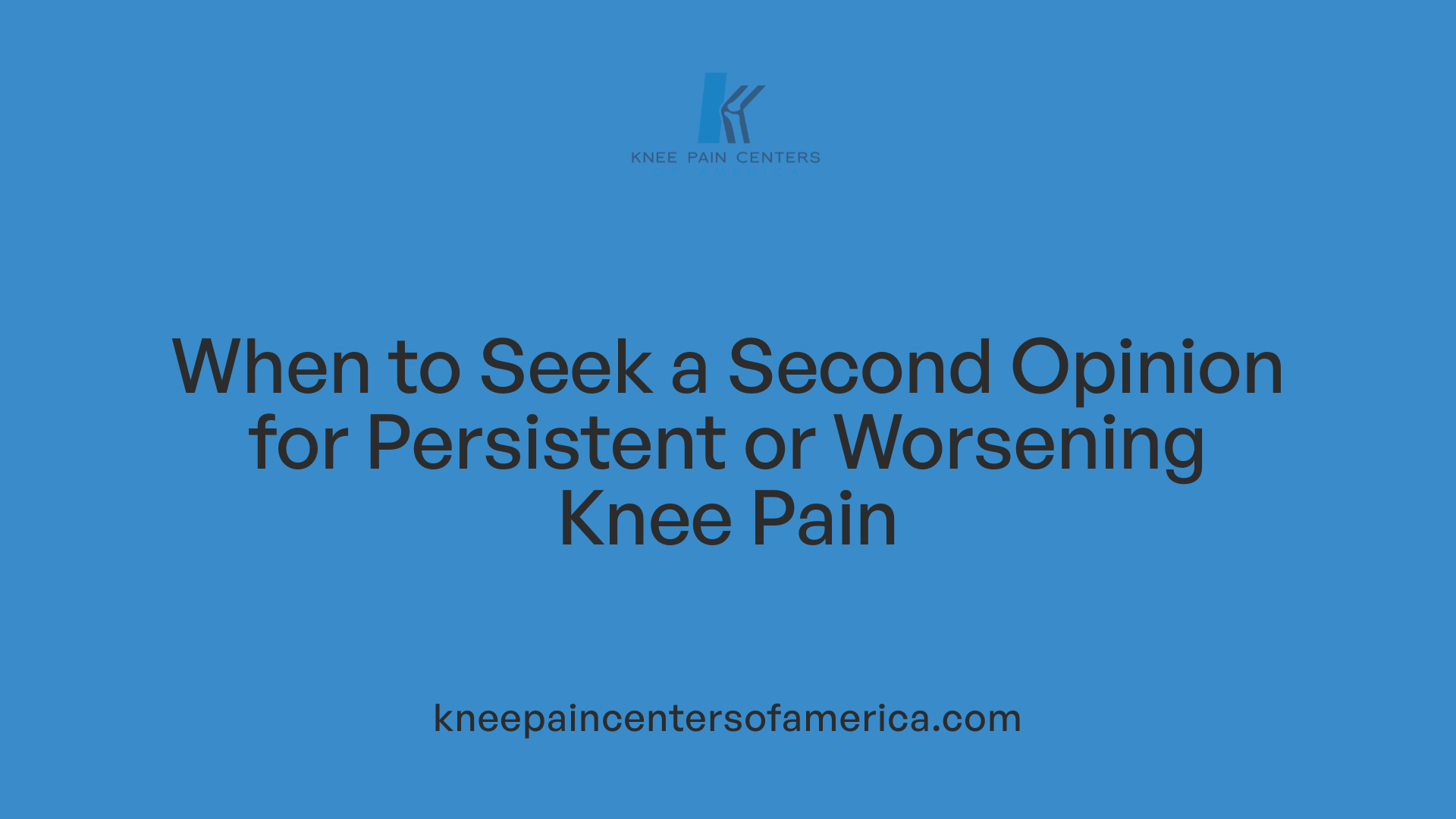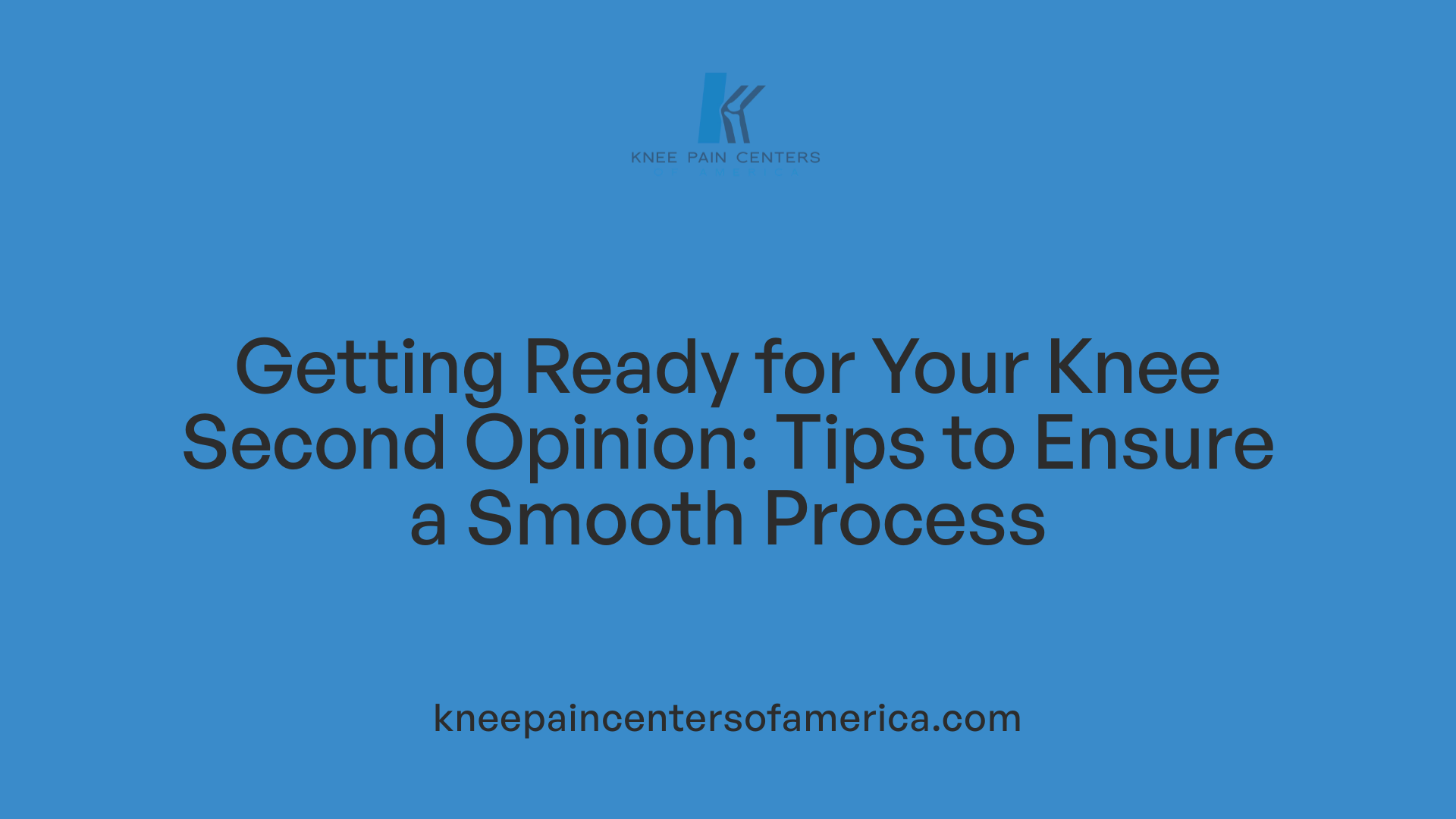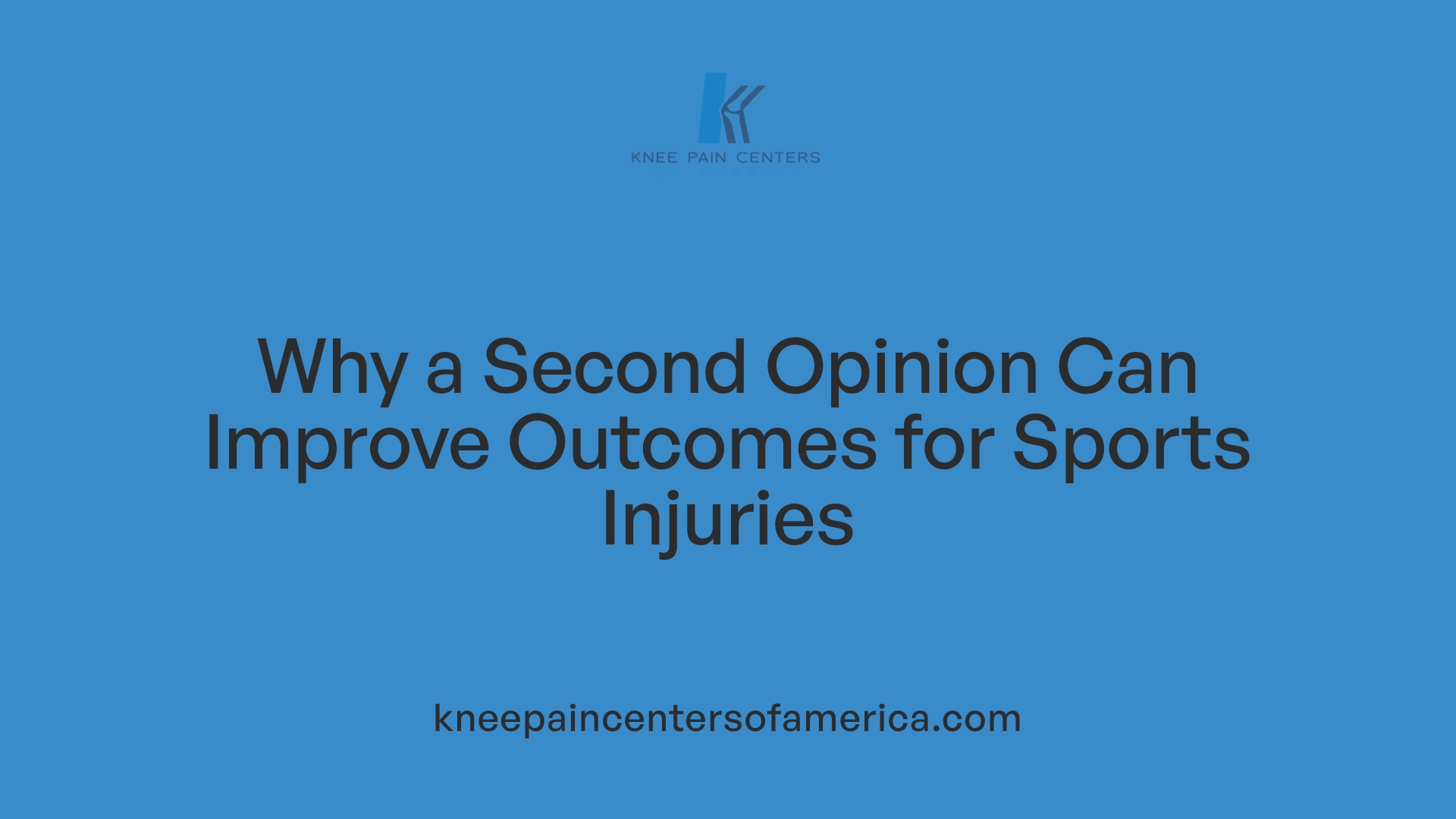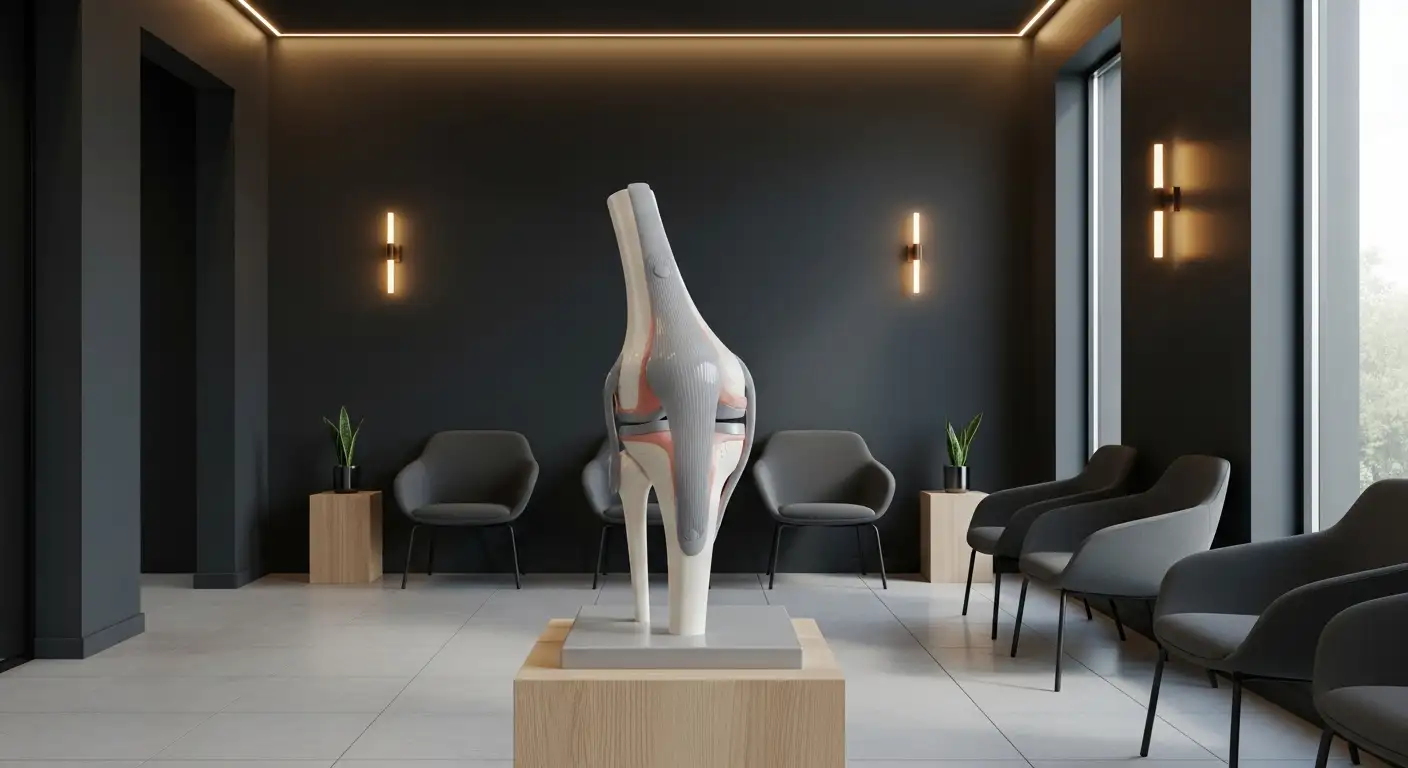Knowing When a Second Opinion can Make a Difference
Knee pain is a common affliction affecting millions, often resulting from conditions like osteoarthritis, sports injuries, or other joint issues. While initial consultations and treatments are crucial, there are circumstances where seeking a second opinion is not only advisable but essential. This article explores when to consider obtaining a second medical opinion for knee pain, emphasizing its role in confirming diagnoses, exploring treatment options, and ensuring optimal outcomes.
Recognizing Urgent Symptoms and When Immediate Care is Needed

When should I seek urgent medical attention for knee pain?
It's important to recognize symptoms that require prompt care. Seek immediate medical attention if your knee shows signs of severe injury, such as deformity, inability to bear weight, or if there's a sudden, intense pain following an injury. Swelling, redness, or warmth around the joint can also indicate significant damage or infection.
Specific signs include a knee that's bent or misshapen, or if you experience a popping sound at the moment of injury. If you find yourself unable to support your weight or if the pain is overwhelming, these are indicators you shouldn't delay in seeking emergency care.
Additional symptoms such as difficulty walking, buckling, collapsing, or sudden loss of function are signs that your knee injury may be serious and needs urgent evaluation.
In cases where injury was caused by a forceful impact, or if you develop fever, redness, warmth, or tenderness, these could suggest infection or deeper tissue damage. Such symptoms require immediate assessment to prevent further complications.
For less severe issues—like persistent pain that affects sleep, ongoing swelling without a clear injury, or prolonged discomfort—it's still advisable to schedule a medical consultation promptly but not necessarily emergency care.
Getting the right treatment early can prevent worsening of the injury and improve your recovery outcomes. If you're unsure about the severity of your knee pain, it's always better to err on the side of caution and seek professional evaluation.
Identifying When a Second Opinion is Necessary for Accurate Diagnosis and Treatment Planning

How can I determine if I need a second opinion for knee pain treatment or surgery?
Deciding whether to seek a second opinion for knee pain or related treatments is an important step in your healthcare journey. One of the main indicators is if your symptoms persist or worsen despite initial treatment efforts. If pain continues over time, even after medication, physical therapy, or injections, it may signal that your condition requires further evaluation.
Another situation that warrants a second opinion is if you’re unsure about your diagnosis or the proposed treatment plan. Sometimes, initial assessments may not fully capture the complexities of your condition, or there might be alternative approaches worth exploring.
Seeking additional advice is especially advisable if your doctor recommends invasive procedures such as surgery. Surgical interventions carry risks, and understanding all available options—even less invasive ones—can significantly impact your long-term outcomes.
Having experienced failed treatments or unsuccessful surgeries in the past also justifies obtaining a second opinion. This can help determine whether additional interventions are necessary or if other therapies might be more appropriate.
Furthermore, if your case is complex or involves factors like osteoarthritis severity, a specialist with specific expertise can provide clarity. Consulting a sports medicine doctor or a joint specialist might reveal different perspectives or advanced treatment options.
In essence, trust your instincts. If you have doubts, feel uneasy about the suggested procedures, or want confirmation that your diagnosis and treatment plan are appropriate, seeking a second opinion can guide you toward the best decision. It ensures you’re fully informed and comfortable before proceeding with major treatment steps.
Preparing Effectively for a Second Medical Opinion

What steps should I take to prepare for obtaining a second medical opinion regarding knee pain?
Preparing for a second opinion can significantly impact the quality of advice and treatment options you receive. Start by collecting all your relevant medical records, including recent imaging results like X-rays or MRIs, lab tests, previous diagnosis notes, and details about any treatments you’ve undergone so far.
It’s helpful to prepare a list of specific questions or concerns you want to address during your appointment. This might include asking about alternative treatments, the necessity of surgery, potential risks, and expected outcomes.
Consider bringing a family member, trusted friend, or caregiver to the appointment for support and to help remember important information.
Research the specialist’s background—look for someone with extensive experience in knee conditions or joint replacements. Reading reviews or checking their credentials with reputable medical boards can help you find a reputable expert.
Contact your insurance provider beforehand to confirm coverage for the second opinion. Find out whether the specialist is within your insurance network or if any out-of-pocket costs might be involved.
Finally, let your current healthcare provider know about your plans to seek a second opinion. Open communication often facilitates a smoother process and ensures all your medical information is shared appropriately.
By taking these steps, you can ensure you’re well-prepared and comfortable with your decision, leading to an informed approach to your knee pain and treatment options.
Advantages of Second Opinions in Sports-related Knee Injuries and Non-Surgical Treatments

What are the benefits of seeking a second medical opinion in sports injury cases affecting the knee?
Seeking a second opinion when dealing with sports-related knee injuries can be extremely helpful. It ensures that the diagnosis is thorough and accurate, which is vital for effective treatment and recovery. Athletes often rely on precise assessments to make decisions about surgery or alternative treatments.
A second opinion can uncover less invasive options that might not have been initially considered. For example, specialized physical therapy or newer procedures like Genicular Artery Embolization (GAE) can sometimes reduce pain and delay or eliminate the need for surgery. Moreover, consulting with experts such as sports medicine specialists or interventional radiologists can help interpret imaging results more accurately, reducing the risk of misdiagnosing the severity or nature of the injury.
Ultimately, getting a second opinion helps athletes make well-informed decisions, improves the chances of a successful recovery, and can facilitate a quicker return to their sport or daily activities. It also enhances communication with healthcare providers, ensuring that treatment plans are tailored to individual needs and goals.
The Impact of Second Opinions on Decisions for Minimally Invasive Procedures and Post-Treatment Evaluation

How can a second opinion influence the decision to pursue minimally invasive treatments like Genicular Artery Embolization?
A second opinion plays a crucial role in guiding patients toward the most suitable treatment options for knee pain caused by osteoarthritis or other conditions. For procedures like Genicular Artery Embolization (GAE), which is minimally invasive and often performed as an outpatient, seeking an additional medical perspective can provide reassurance and clarity.
When a patient consults a different specialist, they may learn about alternative treatments such as physical therapy, medication, or injections that could be effective before considering the more invasive GAE or surgical options. This is especially important because GAE involves blocking blood flow to reduce inflammation and pain, but it isn’t suitable for every case.
A second opinion helps confirm the diagnosis, ensuring that GAE is appropriate for the patient’s specific situation. It also offers an opportunity to discuss potential risks, benefits, and expected outcomes with an expert who may have different experience or insight. This process empowers patients to weigh their options fully.
Moreover, virtual second opinions from renowned centers like the Cleveland Clinic can make expert advice more accessible without extensive travel. They ensure patients feel confident and informed, aligning their treatment choice with personal health goals and lifestyle.
In sum, obtaining an additional expert perspective can improve treatment alignment, enhance confidence, and potentially lead to more effective, less invasive management of knee pain.
Making Informed Decisions for Better Knee Health
Seeking a second opinion is a vital step in the management of knee pain. It ensures accurate diagnosis, confirms the necessity of surgical or invasive treatments, and opens avenues for less invasive options. Patients should trust their instincts and seek expert advice when they have doubts, unusual recovery, or complex cases. Being well-informed and confident in your treatment choices ultimately leads to improved outcomes and better quality of life. Remember, your health care decisions are personal, and obtaining a second opinion is a proactive way to advocate for your knee health.
References
- When Would You Need a Second Opinion?: Mitchell R. Klement, MD
- When to Seek a Second Opinion for Sports Injury - Kai Mithoefer MD
- Should I Get a Second Opinion Before Joint Replacement Surgery?
- When and Why to Consider Seeking a Second Medical Opinion
- A second opinion for knee pain relief - Zehr Center Orthopaedics
- When To Seek A Second Opinion For Knee Pain Treatment
- Second Opinion on Knee Surgery
- When Do You Need a Surgical Second Opinion - Alliance Orthopedics
- Second Opinions Matter - SHELBOURNE KNEE CENTER
- Knee pain: Symptom When to see a doctor - Mayo Clinic





